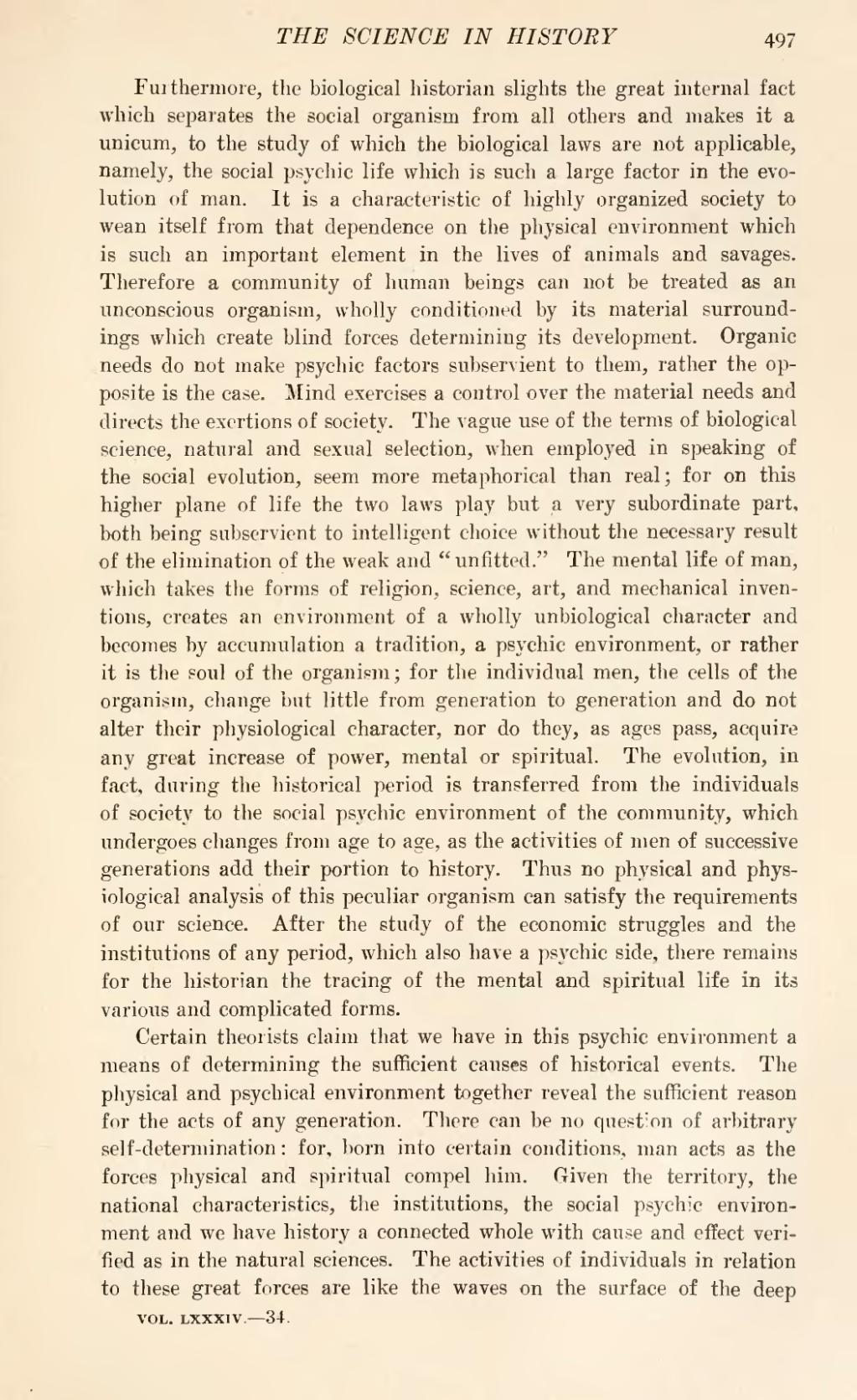Furthermore, the biological historian slights the great internal fact which separates the social organism from all others and makes it a unicum, to the study of which the biological laws are not applicable, namely, the social psychic life which is such a large factor in the evolution of man. It is a characteristic of highly organized society to wean itself from that dependence on the physical environment which is such an important element in the lives of animals and savages. Therefore a community of human beings can not be treated as an unconscious organism, wholly conditioned by its material surroundings which create blind forces determining its development. Organic needs do not make psychic factors subservient to them, rather the opposite is the case. Mind exercises a control over the material needs and directs the exertions of society. The vague use of the terms of biological science, natural and sexual selection, when employed in speaking of the social evolution, seem more metaphorical than real; for on this higher plane of life the two laws play but a very subordinate part, both being subservient to intelligent choice without the necessary result of the elimination of the weak and "unfitted." The mental life of man, which takes the forms of religion, science, art, and mechanical inventions, creates an environment of a wholly unbiological character and becomes by accumulation a tradition, a psychic environment, or rather it is the soul of the organism; for the individual men, the cells of the organism, change but little from generation to generation and do not alter their physiological character, nor do they, as ages pass, acquire any great increase of power, mental or spiritual. The evolution, in fact, during the historical period is transferred from the individuals of society to the social psychic environment of the community, which undergoes changes from age to age, as the activities of men of successive generations add their portion to history. Thus no physical and physiological analysis of this peculiar organism can satisfy the requirements of our science. After the study of the economic struggles and the institutions of any period, which also have a psychic side, there remains for the historian the tracing of the mental and spiritual life in its various and complicated forms.
Certain theorists claim that we have in this psychic environment a means of determining the sufficient causes of historical events. The physical and psychical environment together reveal the sufficient reason for the acts of any generation. There can be no question of arbitrary self-determination: for, born into certain conditions, man acts as the forces physical and spiritual compel him. Given the territory, the national characteristics, the institutions, the social psychic environment and we have history a connected whole with cause and effect verified as in the natural sciences. The activities of individuals in relation to these great forces are like the waves on the surface of the deep
